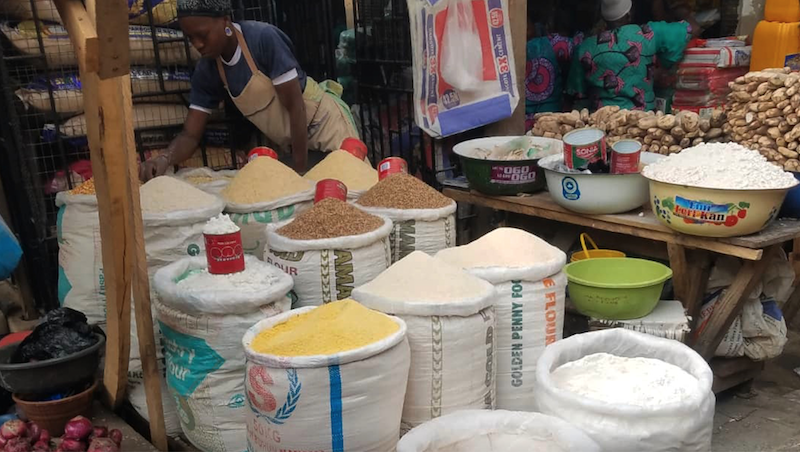While the cost of living in Nigeria continues to rise, Delta State (28.67%) along with Borno (25.97%) and Benue (27.74%) States recorded the slowest rise in headline inflation for all-items inflation rate on year-on-year basis in May 2024.
In May 2024, the all-items inflation rate on a year-on-year basis was highest in Bauchi (42.30%), Kogi (39.38%), and Oyo (37.73%) States.
However, on a month-on-month basis, May 2024 recorded the highest increases in Kano (4.24%), Gombe (4.06%) and Bauchi (3.75%) States, while Ondo (0.57%), Kwara (1.19%) and Yobe (1.24%) recorded the slowest rise on month-on-month inflation.
TheNewsGuru.com (TNG) reports this is contained in the latest report from the National Bureau of Statistics (NBS), which has put the nation’s inflation rate at 33.95% in May 2024.
According to the report released by NBS, inflation continues to bite hard across Nigeria, with varying impacts on different States.
The ten states in Nigeria with the highest cost of living as of May 2024, according to NBS, are Bauchi, Kogi, Oyo, Osun, Lagos, Jigawa, Abia, Bayelsa, Kebbi and Kwara.
In May 2024, the headline inflation rate increased to 33.95% relative to the April 2024 head line inflation rate, which was 33.69%.
Looking at the movement, the May 2024 headline inflation rate showed an increase of 0.26% points when compared to the April 2024 headline inflation rate.
On a year-on-year basis, the headline inflation rate was 11.54% points higher compared to the rate recorded in May 2023, which was 22.41%.
This shows that the headline inflation rate (year-on-year basis) increased in the month of May 2024 when compared to the same month in the preceding year (i.e., May 2023).
On the contrary, on a month-on-month basis, the headline inflation rate in May 2024 was 2.14%, which was 0.15% lower than the rate recorded in April 2024 (2.29%).
This means that in the month of May 2024, the rate of increase in the average price level is less than the rate of increase in the average price level in April 2024.
On a year-on-year basis, in the month of May 2024, the urban inflation rate was 36.34%, this was 12.61% points higher compared to the 23.74% recorded in May 2023.
On a month-on- month basis, the urban inflation rate was 2.35% in May 2024, this was 0.32% points lower compared to April 2024 (2.67%).
The corresponding twelve-month average for the urban inflation rate was 31.07% in May 2024. This was 9.12% points higher compared to the 21.95% reported in May 2023.
The rural inflation rate in May 2024 was 31.82% on a year-on-year basis; this was 10.63% higher compared to the 21.19% recorded in May 2023.
On a month-on-month basis, the rural inflation rate in May 2024 was 1.94%, up by 0.02% points compared to April 2024 (1.92%).
The corresponding twelve-month average for the Rural inflation rate in May 2024 was 27.27%. This was 6.76% higher compared to the 20.50% recorded in May 2023.
Meanwhile, in May 2024, food inflation on a year-on-year basis was highest in Kogi (46.32%), Ekiti (44.94%), Kwara (44.66%), while Adamawa (31.72%), Bauchi (34.35%) and Borno (34.74%), recorded the slowest rise in food inflation on year-on-year basis.
On a month-on-month basis, however, May 2024 food inflation was highest in Gombe (4.88%), Kano (4.68%), and Bayelsa (3.62%), while Ondo (0.02%), Yobe (0.95%) and Adamawa (1.02%) recorded the slowest rise in food inflation on month-on-month basis.




